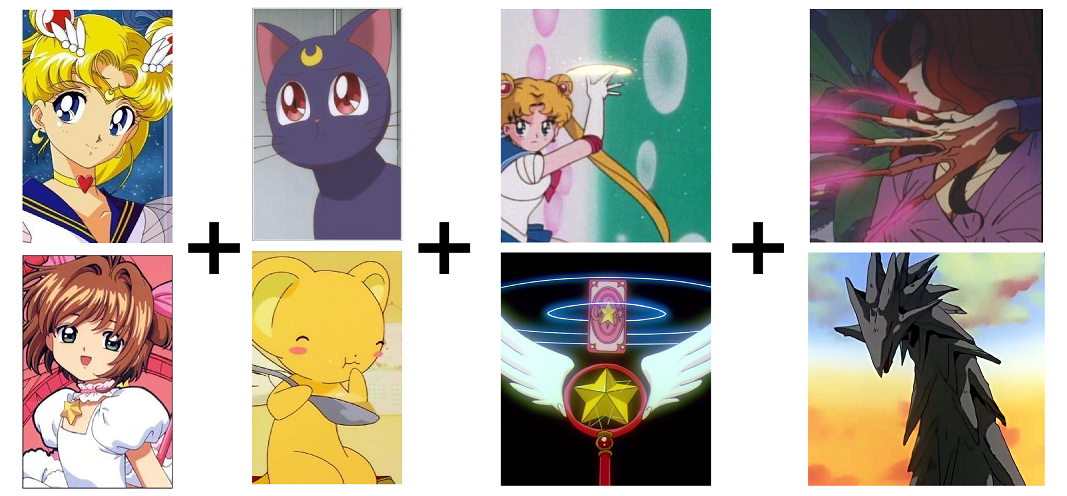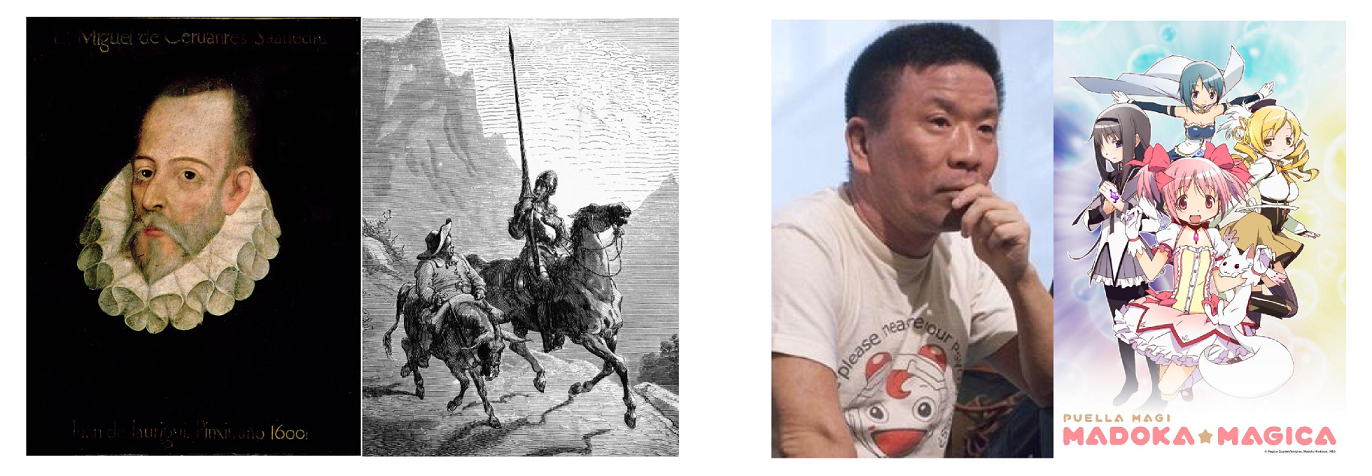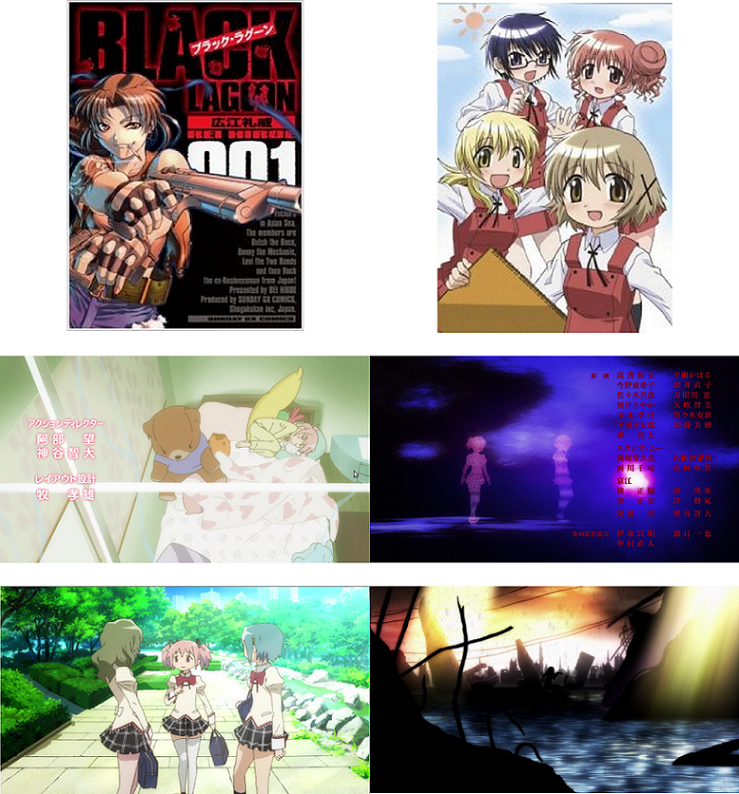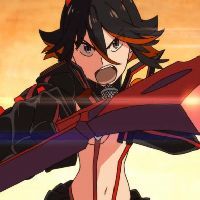This article was written by gchau and edited by Impossible and nirosa of the MAL Articles Club.
Interested in writing or editing for us? Click here!
Disclaimer: I am not suggesting that Madoka Magica can match the greatest Spanish novel and one of the greatest novels of world literature. I am only making a parallel of the contexts in which both works were created, analyzing their disruptive effects, and taking a look at what conclusions we can draw from them.
Introduction
Mahou Shoujo Madoka Magica (or Puella Magi Madoka Magica as broadcasted in English) is an original anime produced by studio Shaft and written by Gen Urobuchi. Since its broadcast in 2011, it has been touted as a well-crafted and high quality anime that revolutionized the magical girl (or 'mahou shoujo') genre. Here, we will talk about the origins of this anime and how it changed the landscape of its genre forever.
How It Was Before Madoka
The magical girl genre is a well-known category of anime that encompasses classics such as Sailor Moon and Cardcaptor Sakura. The basic premise of a magical girl show is that little girls are approached by a cute-looking magical creature who grants them incredible powers. After a sparkling transformation sequence, they go on to fight the forces of evil. This basic plot line, combined with idealised values of friendship and love, were the defining guidelines for the genre until 2010.
This situation for the magical girl genre is fairly similar to the environment in which the famous novel Don Quixote was born. To understand this, some background context is called for. Don Quixote (whose full English title is "The Ingenious Nobleman Mister Quixote of La Mancha") is a novel written in the seventeenth century by Miguel de Cervantes. It is considered to be the pinnacle and most influential work of the whole Spanish literary canon. Until that point in history, the literary genre of chivalric romance was one of the most popular ones among the public, especially among aristocrats. The chivalric romance novel was characterized by the representation of classical knight's values such as loyalty, courteous manners, and pure and devoted love for a lady, which evoked the respect and admiration of the people.
As we can see, the two situations are both characterized by a fairly popular genre (magical girl or chivalric romance) which was marked by some staple elements, whether they relate to being a magical girl or a knight-errant, along with, some may say, idealistic notions of stories and characters. However, both of these status quos were soon to be disrupted.

Basic elements of a magical girl anime: the young female protagonist, the cute magical mascot, magical powers, and the 'forces of evil'.
The Beginning
Madoka Magica began when Akiyuki Shinbo approached Aniplex producer Atsuhiro Iwakami about his desire to create a new magical girl series. They decided not to adapt any existing work, instead choosing to create an original anime series that could appeal to a wider demographic than the genre's usual audience.
Iwakami invited some of the industry's most experienced professionals to work on this project. Gen Urobuchi, who previously worked on mature shows such as Phantom: Requiem for the Phantom and Black Lagoon, was hired to write the script and Ume Aoki was tasked with character design. Shinbo later recruited Yuki Kajiura for the soundtrack composition, after hearing her earlier collaboration in Cossette no Shouzou.
Urobuchi was given free reign to write the story as he pleased; the only request was a bloody story where magical girls appear, then die one by one. Urobuchi specifically stated: "I paid attention to the aspects that are troubling or overlooked in the traditional magical girl genre. I've been thinking that magical girls who have acquired superhuman abilities will find themselves removed from the world, which would cause contradictions and reactions." And that was exactly what he did...

Left: Miguel de Cervantes and an illustration of Don Quixote. Right: Gen Urobuchi and one of the promotional images of Madoka Magica.
The Blessing
In its first episodes, Madoka Magica seemed to follow the formula for the genre. The young girls Madoka and Sayaka meet with a cute magical creature, Kyuubey, who offers them a contract: he will grant any wish they have but in exchange, they will gain magical powers and must fight the forces of evil—witches. After that, Madoka Magica rapidly evolves from an adorable light-hearted story to a much more dramatic and convoluted plot that explores the magical girls' relationships, despairs, egoism, and the price they must pay for fulfilling their wishes.
The show was purposely marketed in an innocent and pure manner. Even the title logo was designed with a delicate and friendly style. Furthermore, Urobuchi used his Twitter account to try to convey innocence in the plot. The dark themes of the series were disguised in such a way so they would come as a complete surprise to the audience.
This deliberate antithesis is obvious in every aspect of the show: the paradoxical juxtaposition of Urobuchi's dark and foreboding story with the charming characters designed by Aoki, the bright and upbeat opening theme by ClariS and the more mysterious and solemn undertones of Kajiura's soundtrack, the innocence of the first episodes and the despair and emotional turmoil of the anime's ending.
Thus, it is widely stated that Madoka Magica is a brilliant 'deconstruction' and 'reconstruction' of the magical girl genre. The term deconstruction in anime does not have a globally agreed-upon definition but we will take it to mean the distillation of a plot element and recreating it in other more real scenarios, effectively 'breaking the mold' established by the genre and the expectations of the viewer, possibly signaling existing flaws in the genre. After this happens, there is the potential for a reconstruction. A reconstruction accepts the analysis and critical elements that were revealed by the deconstruction and modifies the elements so they resemble their original essence, but in a more authentic way. This reinforces the original values of the genre, but they are no longer idealized and can exist in more realistic scenarios. In many cases, this process is beneficial for the development of a genre and anime in general, as it stirs up creativity and pushes out the boundaries of a genre.
A piece of fiction can be both a deconstruction and a reconstruction at the same time, and Madoka Magica is one of those. It keeps the basic elements of magical girls but sheds light on real-world issues such as the cost of fulfilling your wishes, and the egoism and cruelty of human nature. In its final episodes, the show proceeds to reconstruct the genre by reaffirming, even in the desperate and tragic world it created, the classical values of the magical girl genre.
The final product is an anime that appeals to more mature audiences. If a magical girl anime that could appeal to a wider audience was the main objective of Shaft, they really achieved it. Iwakami stated that "after the show was broadcast, it felt like the viewership turned out to be broader than we had initially anticipated".
In the same way, although normally regarded as a parody of chivalric romance novels, the Quixote represents much more than that. To some authors, Cervantes attacks not this type of novel per se, but its defects. The Quixote deconstructs the genre by attacking the extraneous and polluting elements, and by putting our knight-errant in the "real world". But we can also consider it to be a reconstruction as, for some critics, Cervantes tries to purify and maintain only the real essence of Castilian chivalry, thus reaffirming the true values of this profession. Some sources state that by doing so, instead of a parody, Cervantes in fact wrote the best chivalric novel of all time. And in my opinion, and that of many others, Gen Urobuchi has written one of the best, if not the best, magical girl anime to date.

Contrasting elements of Mahou Shoujo Madoka Magica. Top: Previous works of writer Urobuchi (Black Lagoon) vs. previous works of designer Aoki (Hidamari Sketch). Middle: Opening sequence by ClariS vs. ending sequence by Kalafina (Kajiura's band). Bottom: Lighthearted scene from first episodes vs. darker scene from the final episodes.
The Curse
When Cervantes published the Quixote, chivalric novels were already declining in popularity, but the knight of 'La Mancha' gave these books the coup de grâce. After its publication, the name of another novel in the genre is seldom mentioned. Some believe this was caused by Don Quixote being such a harsh parody, but other critics think that it was because Cervantes had written a chivalric novel so great it could never be surpassed.
Will something similar happen to the magical girl genre? Maybe Madoka's impact on the anime industry will mirror the descent from happiness to melancholy in its own plot. Now, we no longer see the genre in the same way; many viewers will watch upcoming magical girl shows longing for these complex and psychological themes. Whether we like it or not, comparison to Madoka Magica will haunt the genre for years to come. Has Madoka Magica set the bar too high? Two subsequent magical girl animes that tried to follow Madoka Magika are Yuuki Yuuna and Ikusei Keikaku. In my opinion, however, both fail to provide the same character development and psychological insight as their predecessor (more detailed analysis of these shows can be found here and here). It is not overstating to say that, based on popularity and score rankings, since 2011 no other magical girl show has caused the same critical and popular reception as Madoka Magica.
Conclusion
Whether we like Urobuchi's creation or not, it is undeniable that Madoka Magica has had an enormous impact to the magical girl genre. Madoka Magica took the world by surprise and deconstructed and reconstructed its root genre, just as Cervantes' Don Quixote did with the romance chivalric literary genre four centuries earlier. Clearly, this new generation of magical girl shows has brought extraordinary benefits to the genre, but will it end up causing its demise? Hopefully, this is just paranoia. Despite similarities in the context of both stories, there are enough differences to convince me that the magical girl genre will keep on evolving and reinventing itself. The positive elements that Madoka Magica have bestowed to the anime world will be interiorized, further nurturing the genre and fostering its growth.



